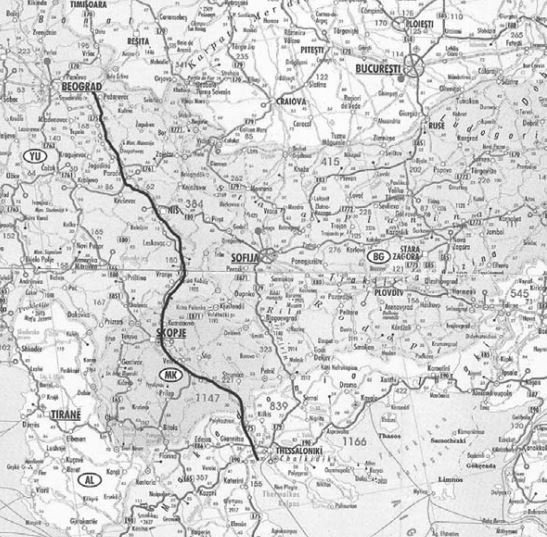January 29, 2018
by Feggari Zappa
One of the critical issues that will determine the course of the so-called "Macedonian Question" is its geo-economic dimension, at the core of which is the New Floating Road - an investment on a transport canal that will unify the Danube with the port of Thessaloniki through Serbia's Morava River (a left tributary of the Danube), through the Axios River which connects FYROM and Greece. This issue remains a high priority in negotiations between Greek Prime Minister Alexis Tsipras and Serbian President Aleksandar Vucic.
The "Danube-Thessaloniki Floating Road" is also a key talking issue between Greek Foreign Minister Nikos Kotzias and his FYROM counterpart to the north, Nicola Dimitrov. The Danube is the second largest river in Europe after Volga. It flows from Germany's Black Forest, traverses mainly east 2850 km, crosses several capitals of central and eastern Europe and ends up in the Black Sea through Romania. That is, it is a river of enormous economic and commercial importance. Its connection into Greece's Thermaic Gulf into the city of Thessaloniki has been an idea since the 1970s. It's a shortcut between Northern Europe and the Aegean Sea by 1200 kms.
The project's capital expenditure to build a canal, is estimated to at $17 billion US dollars over an approximated eight year span and will employ thousands of workers and dozens of technical companies, as plans include hydro power plants (400 megawatts).
A Project of Enormous Significance
It is no accident that just days ago, Greece's privatized electric company announced that it is very close to acquiring the EDS Power Supply Company in Skopje (FYROM), a subdivision of the Feroinvestroup (founded in 2003). This group is active in metallurgy, renewable energy and electricity trade in both Skopje and South East Europe.
Interest has been expressed by investors from China, the US, Germany, Russia, FYROM and Greece to participate in the construction of this waterway from Belgrade to Thessaloniki. This is a project of huge strategic importance from a geo-economic point of view as it serves the new energy transfer plans from the Eastern Mediterranean to Central Europe, bypassing Turkey as it is considered unstable. It is no coincidence that Greece's Prime Minister Tsipras described the plan of the floating runway as "a huge project" for Greece, Serbia and Europe. It is also not a coincidence that Greece is proceeding with a major defense supplies plan, including 100 fighter helicopters, upgrades from the F-16s, purchases of the 2 + 2 ultra-modern FREMM frigates, and Mark-V and more.
In this geo-economic context, and given the Greek positions and the determination of the US and Russia to move ahead with the notorious Maltese Accord (1989), the Greek side can expect the happy closure of a national issue which has plagued her for 70 years.
